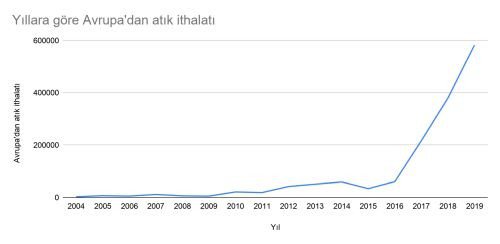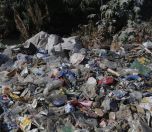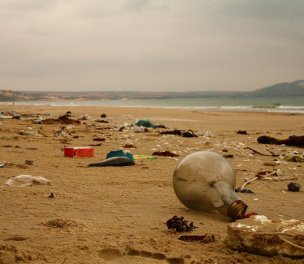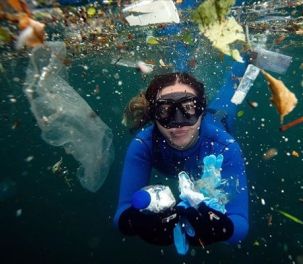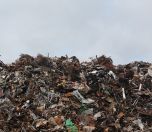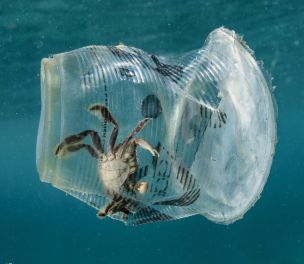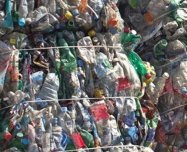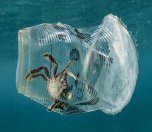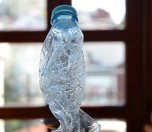* Photos: Greenpeace
Click to read the article in Turkish
Greenpeace has announced that the amount of plastic waste imported by Turkey from the European Union (EU) countries has increased by 173 times since 2004. As China has banned plastic waste import in 2018, Turkey has become a new destination for plastic waste.
According to Greenpeace, the novel coronavirus (COVID-19) outbreak and the ensuing risk of the virus to be transmitted through plastics have manifested just another horrible face of the waste problem.
CLICK - Greenpeace: Not Single-Use Plastics, But Hygiene Protects You from Coronavirus
In its statement, Greenpeace has also indicated that Minister of Environment and Urbanization Murat Kurum made a statement last week and announced that the relevant institutions were asked to submit their final opinions as to the temporary suspension of waste import.
"In its project launched with the motto 'Don't let Turkey become a plastic waste dump,' Greenpeace Mediterranean requests a ban on plastic waste import in the face of the risks posed by plastics to environment, sea creatures and, ultimately, humans," Greenpeace has noted.
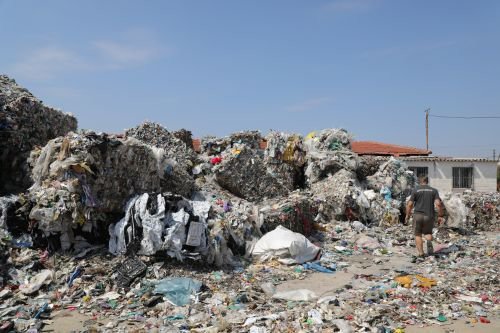
What do recent Eurostat data say?
Greenpeace Mediterranean has also referred to the recent data shared by the Eurostat, the statistical office of the EU:
* We rank first in plastic waste import from Europe. Of 14 million tons of waste imported from EU countries in 2019, 582,296 were plastics.
* In the year 2019, when plastic waste import hit a record high, the monthly average plastic waste import increased to 48,500 tons. It was mainly caused by waste coming from the UK (153,967), Italy (89,047), Belgium (85,843), Germany (67,466) and France (56,824).
* Our plastic waste import increased by 173 times from 2004 to 2019. It means 213 truckloads of plastic waste dumped in our country per day.
* Waste import from Europe by years
Click on the image to enlarge
Temiz Ataş: Import has increased to 48,500 tons
Commenting on the issue, Nihan Temiz Akkaş, the Plastic Project Director of Greenpeace Mediterranean, has underlined that Turkey should avoid paving the way for greater environmental problems by importing plastic waste from other countries while it cannot deal with its own waste:
"For years, there was a seemingly very simple solution to get rid of plastic waste: Recycling. But, recycling is difficult and expensive and, contrary to general belief, most plastic products cannot be recycled. We know that only 9 percent of the plastics produced since 1950 have been recycled.
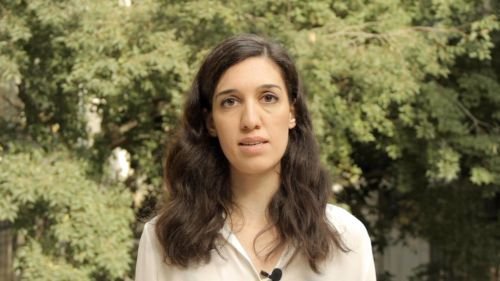
Greenpeace Mediterranean Plastic Project Director Nihan Temiz Ataş
"That being the case, countries discovered that it would be easier and cheap to sell their plastic waste to other countries. China got in the picture at that very moment. However, with the ban on plastic waste imports entering into force in China in 2018, the detrimental nature of the global recycling system has been brought into light from under the rug.
"Shortly afterwards, Turkey has become a new destination for plastic waste import. While Turkey's import was 4,000 tons in early 2016 and 33,000 tons in early 2018, this figure increased to 48,500 tons in 2019.
'Turkey cannot cope with its own waste'
"Turkey is a country that cannot cope with its own waste. We cannot be a zero-waste country by importing plastic waste from other countries. An uncontrolled plastic waste import will do nothing, but aggravate the existing problems in Turkey's own recycling system.
"We saw it in İzmir Kemalpaşa as well, we saw to whom the area with plastic waste belonged, from where and when the waste was brought and why there were no inspections. To top it all, the risk of plastic wastes to transmit the virus has also become an issue during coronavirus outbreak.
"We demand that the Ministry of Environment and Urbanization ban plastic waste import and introduce mechanisms of transparency and inspection to the waste recycling. Don't let Turkey become a plastic waste dump!" (TP/SD)





